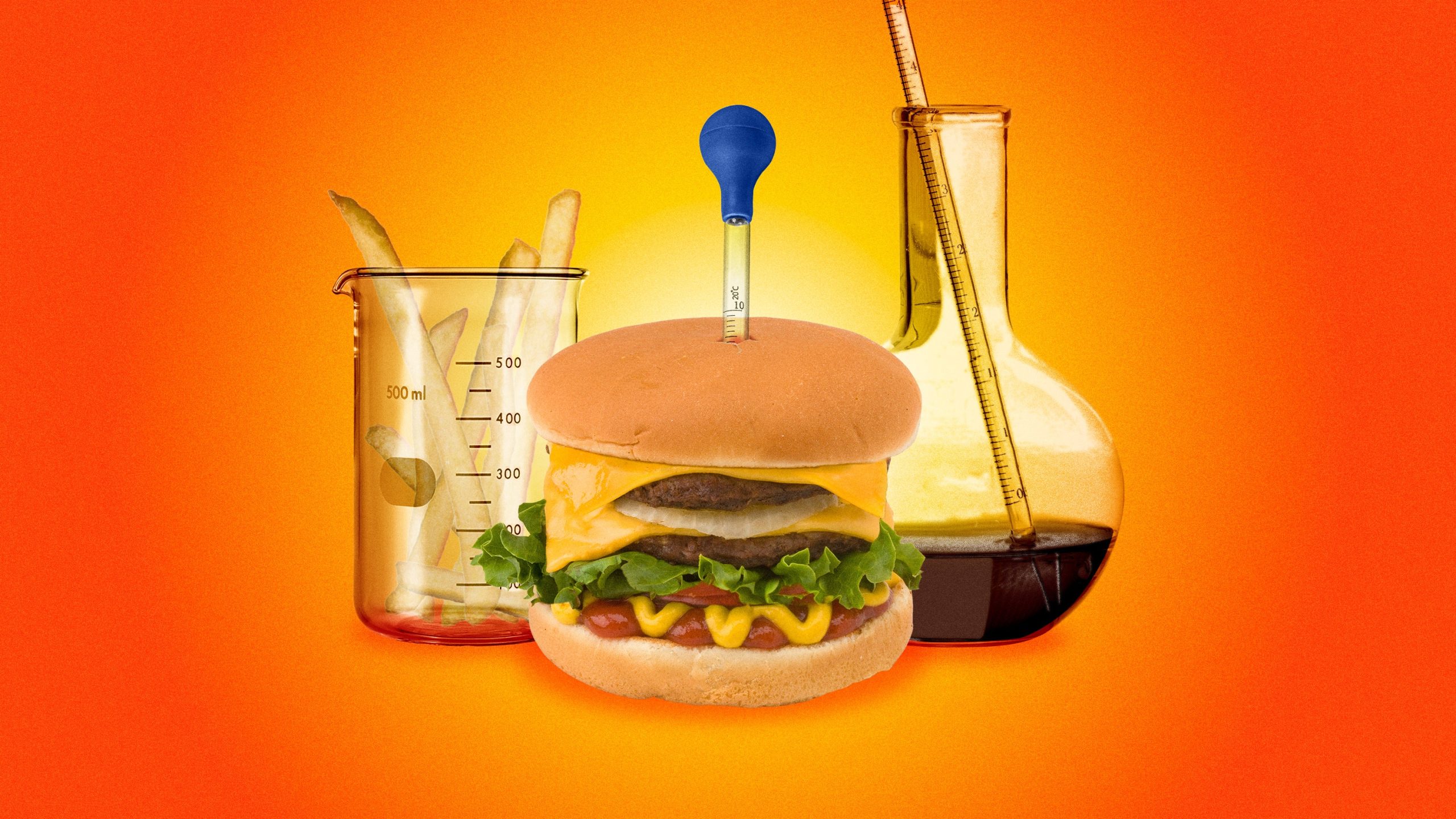The Case for (Briefly) Eating Tons of Ultra-Processed Food

They’re leaning into this idea of reformulating. And what I think the consumer knows is that we’ve been reformulating foods since 1980, since Marion Nestle’s Surgeon General Report, where we said our fats are not great. So that was when the yogurt companies started taking the fat out of yogurts, replacing it with Xanthan Gum and guar gum and carrageenan. And we’ve been reformulating very hard for four decades. And all that’s happened is obesity has grown.
And the ultimate reformulation is the replacement of sugar with non-nutritive sweeteners, whether they’re natural or not. And the World Health Organization has now taken the same position that I did in my book, which is that they are definitely not better than sugar, and they may have a lot of other negative health outcomes—they may exacerbate obesity, and they may exacerbate metabolic disease.
You talk about the importance of having to make food at scale when you’re a giant corporation. They’re beholden to shareholders, not the customer. How are these companies going to be incentivized to not offer foods that are cheap, scalable, and addictive?
My main answer is I don’t have to have a blueprint for restructuring the food system; the food system will do that. And they’ll do it very well, once the incentives become health and nourishment. The market forces will sort it out if you regulate a market. So we see this with pharmaceuticals—they did incredible harm and acted in all sorts of corrupt ways until in the early 2000s, they were very tightly regulated. Since then they’ve seen more growth than almost any other sector, apart from tech. And with every bit of regulation, they get better at making more money. And they develop great drugs. And they are actually incentivized to develop drugs for populations previously that they maybe wouldn’t have. The government already regulates the food industry with subsidies and incentives, so it’s just about realigning those.
I think the movement is growing. Twenty years ago, Michael Pollan came up with his “eat food, mostly plants, not too much.” And that was hard, because it was advocating individual responsibility. Now people are starting to go, “No, individual responsibility won’t work, we need structural change.” And once the population wants it, the politicians will force it. That’s my naive expectation.
For a while, it seemed like margarine replaced butter in a lot of households. Is there something you think is going to be like the margarine of this time—something we thought was a healthy change but really wasn’t?
I guess there are two answers. One would be diet sodas. The idea that a mixture of artificial sweeteners and phosphoric acid with an addictive drug and some coloring would be a health food? Would be sponsoring athletic events? I think it is soon when people are like, “That was wild, Coca-Cola used to sponsor the Olympics. Wow.” In my lifetime, I think that will arrive sooner than we think. Change is so weird. It’s very sudden there are these tipping points. So I don’t I don’t know if it will happen. The global south is still extremely vulnerable to these marketing efforts. And Ronaldo did it at the last Euros. Did you see him? You know, he moved the Coca-Cola. And he said, “Drink water.”
So the diet sodas, the sports food, the sachets, the gels, the Huel stuff. I mean, the idea that Huel is an athletic health product is very bizarre. I think this is more the case in the UK than the US, but we have this sort of “artisanal” ultra-processed food where it’s country grains, homegrown, and there’s a picture of a tractor and a barnyard but it’s still got diacetyl tartaric acid esters of mono and diglycerides of fatty acids. And so I think that the bread, the athletic stuff, and the diet soda would be my candidates for achieving margarine status.
How would you guide someone on how to avoid getting stuck in this analysis paralysis, where you’re like, “Wait, not only is the food bad for me, but also what it’s wrapped in?” There’s so many factors, and sometimes they might be beyond our control.
You know, I get WhatsApps from friends all day going, “Does calcium carbonate make the bread ultra-processed?” No, that’s just a thing that they legally have to add to flour. I think there are two groups of people. I was someone who lived with quite an addictive relationship to types of UPF. And the research is very clear that for many people, there are UPF products that are as addictive as tobacco products, cocaine, alcohol, and they’re harder to quit. It’s very convincing. And if you are someone who lives with an addiction, then moderation is extremely hard. So I have found that just quitting UPF, I actually eat a much broader variety of foods than I did previously. it gives you more choice, not less. But it’s expensive and time consuming. There’s a joy to cooking as well. But I don’t want to be evangelical about that because it’s obnoxious, and not everyone can do it.
Continue Original Post here:
The Case for (Briefly) Eating Tons of Ultra-Processed Food

